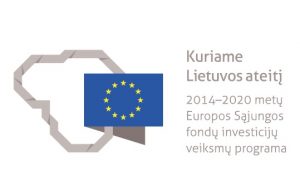“Associations between adolescents’ gender identity and psychosocial functioning over a one-year period”, Nr. 09.3.3-LMT-K-712-23-0210

Project No. 09.3.3-LMT-K-712-23-0210
Project title: „Associations between adolescents’ gender identity and psychosocial functioning over a one-year period“
Project duration: 2021-06-22 to 2023-06-21
Postdoctoral trainee – dr. Oksana Malinauskienė
Postdoctoral supervisor– prof. dr. Rita Žukauskienė
Summary: Adolescence is a crucial developmental period for the development of non-normative gender identity (e.g. Steensma et al., 2013), and as identity is actively debated during adolescence, all adolescents are inevitably in a search for gender identity. As gender identity difficulties may interfere with adolescents’ ability to effectively perform tasks relevant to adolescence and have negative short- and long-term consequences for both physical and psychological well-being, identifying and assessing gender identity difficulties in adolescence is important from both the theoretical and practical perspective. However, the available knowledge on adolescents’ gender identity is very limited and fragmented, and in Lithuania in general, this important aspect of adolescent development is little discussed, let alone researched. The training on sex education in Lithuania is based on the experience of foreign countries, there is a lack of a scientific basis for the situation in Lithuania, and there is no counterbalance to the research carried out abroad. Therefore, the study, which will involve 400 adolescents, aims to reveal the links between adolescents’ sexual identity and psychosocial functioning over a one-year period. The three measurements will make it possible to identify the relationship between adolescents’ sexual identity and psychosocial functioning and how it changes over time. The results of this study are significant in the context of developmental psychology research in Lithuania and abroad for several reasons: 1) it could expand the very limited and fragmented knowledge about adolescents’ gender identity and psychosocial functioning; 2) it could help to clarify aspects of adolescents’ gender identity that are specific to our cultural context. Practical benefits of the work: guidelines for preventive work with adolescents could be provided, intervention programmes to improve adjustment in late adolescence could be justified and recommendations could be developed. It would also contribute to school policies related to sex education.
Outcome: 1. Manuscript of a scientific publication (in a foreign scientific periodical with an Impact Factor in the Clarivate Analytics (formerly Thomson Reuters) Web of Science database, with supporting documentation) prepared and submitted to the press. 2. a manuscript of a scientific publication prepared and submitted for publication (manuscript of a scientific article submitted to a publishing house/editorial office with supporting documentation in other peer-reviewed scientific publications (conference proceedings (article or extended thesis), periodical or occasional proceedings, etc.)) 3. Two papers prepared and accepted for an international scientific conference. One workshop on adolescent sexual identity prepared and delivered. One public lecture on adolescents’ sexual identity and psychosocial functioning.
The project is funded by the European Social Fund under the measure No 09.3.3.3-LMT-K-712 “Development of scientific competence of scientists, other researchers, students through practical scientific activities” under the activity “Promotion of post-doctoral internships”. Grant agreement with the Lithuanian Research Council (LMT).